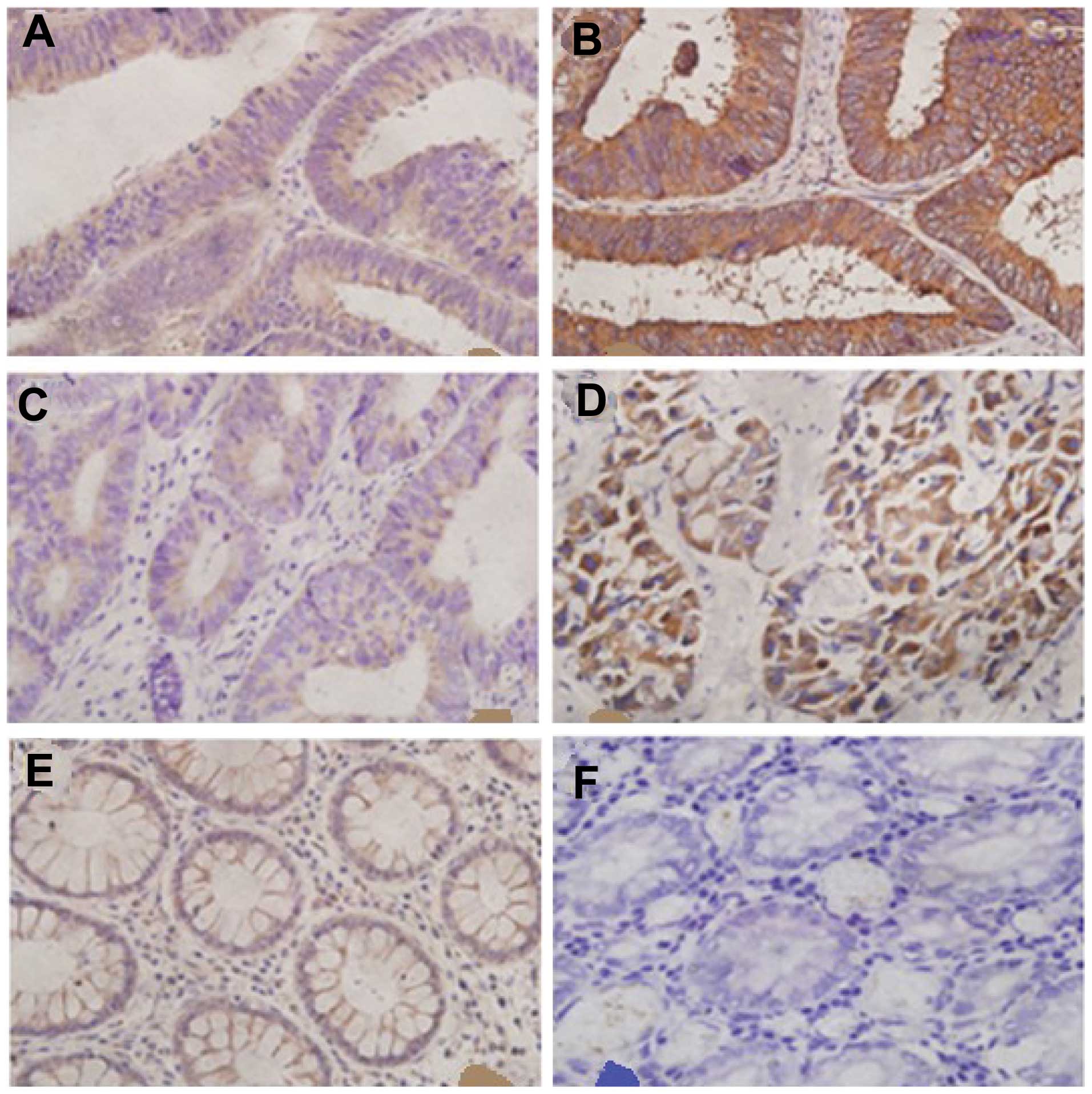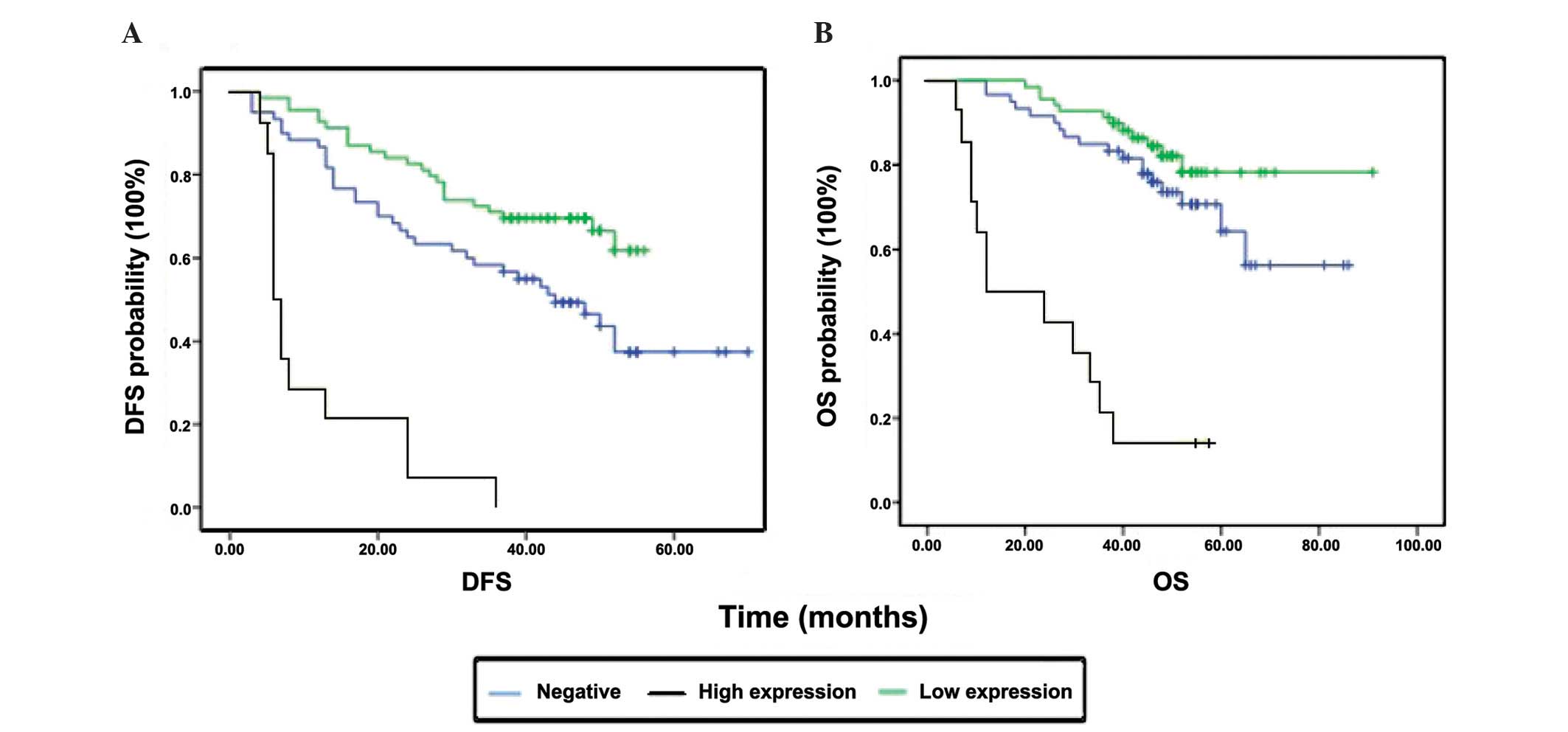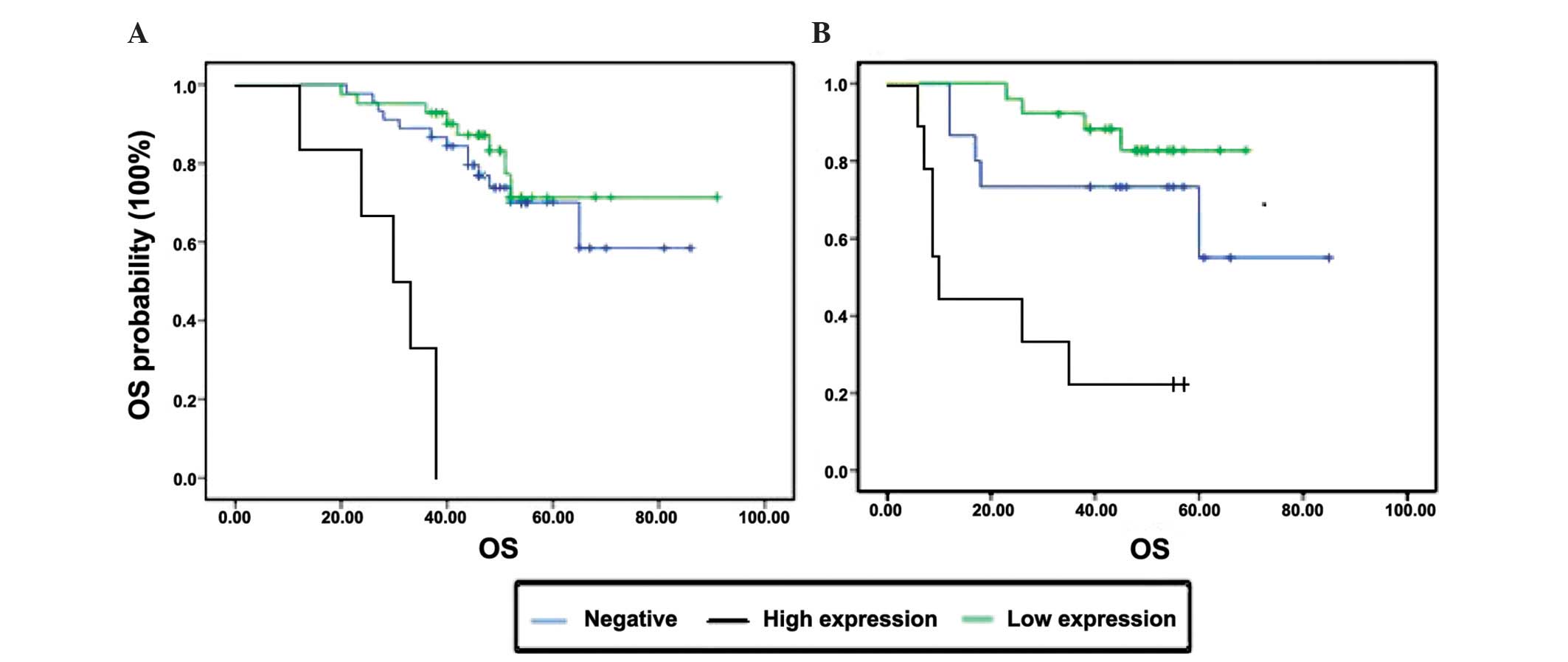|
1
|
Jemal A, Bray F, Center MM, Ferlay J, Ward
E and Forman D: Global cancer statistics. CA Cancer J Clin.
61:69–90. 2011. View Article : Google Scholar : PubMed/NCBI
|
|
2
|
Chambers AF, Groom AC and MacDonald IC:
Dissemination and growth of cancer cells in metastatic sites. Nat
Rev Cancer. 2:563–572. 2002. View
Article : Google Scholar : PubMed/NCBI
|
|
3
|
Benson AB III, Schrag D, Somerfield MR,
Cohen AM, Figueredo AT, Flynn PJ, Krzyzanowska MK, Maroun J,
McAllister P, Van Cutsem E, et al: American Society of Clinical
Oncology recommendations on adjuvant chemotherapy for stage II
colon cancer. J Clin Oncol. 22:3408–3419. 2004. View Article : Google Scholar : PubMed/NCBI
|
|
4
|
Ribic CM, Sargent DJ, Moore MJ, et al:
Tumor microsatellite-instability status as a predictor of benefit
from fluorouracil-based adjuvant chemotherapy for colon cancer. N
Engl J Med. 349:247–257. 2003. View Article : Google Scholar : PubMed/NCBI
|
|
5
|
Sargent DJ, Marsoni S, Monges G, Thibodeau
SN, Labianca R, Hamilton SR, French AJ, Kabat B, Foster NR, Torri
V, et al: Defective mismatch repair as a predictive marker for lack
of efficacy of fluorouracil-based adjuvant therapy in colon cancer.
J Clin Oncol. 28:3219–3226. 2010. View Article : Google Scholar : PubMed/NCBI
|
|
6
|
Zlotnik A: Chemokines in neoplastic
progression. Semin Cancer Biol. 14:181–185. 2004. View Article : Google Scholar : PubMed/NCBI
|
|
7
|
Balkwill F: Cancer and the chemokine
network. Nat Rev Cancer. 4:540–550. 2004. View Article : Google Scholar : PubMed/NCBI
|
|
8
|
Dwinell MB, Lügering N, Eckmann L and
Kagnoff MF: Regulated production of interferon-inducible T-cell
chemoattractants by human intestinal epithelial cells.
Gastroenterology. 120:49–59. 2001. View Article : Google Scholar : PubMed/NCBI
|
|
9
|
Kawada K, Hosogi H, Sonoshita M, Sakashita
H, Manabe T, Shimahara Y, Sakai Y, Takabayashi A, Oshima M and
Taketo MM: Chemokine receptor CXCR3 promotes colon cancer
metastasis to lymph nodes. Oncogene. 26:4679–4688. 2007. View Article : Google Scholar : PubMed/NCBI
|
|
10
|
Zhang R, Zhang H, Zhu W, Pardee AB, Coffey
RJ Jr and Liang P: Mob-1, a Ras target gene, is overexpressed in
colorectal cancer. Oncogene. 14:1607–1610. 1997. View Article : Google Scholar : PubMed/NCBI
|
|
11
|
Jiang Z, Xu Y and Cai S: CXCL10 expression
and prognostic significance in stage II and III colorectal cancer.
Mol Biol Rep. 37:3029–3036. 2010. View Article : Google Scholar : PubMed/NCBI
|
|
12
|
Li ZS and Li Q: The latest 2010 WHO
classification of tumors of digestive system. Zhonghua Bing Li Xue
Za Zhi. 40:351–354. 2011.(In Chinese). PubMed/NCBI
|
|
13
|
Matsuda T, Seki T, Ogawara M, Miura R,
Yokouchi M and Murakami M: Levels of beta-thromboglobulin and
platelet factor 4 in various diseases (author's transl). J Jpn
Hematol Soc. 43:871–878. 1980.(In Japanese).
|
|
14
|
Schimanski CC, Schwald S, Simiantonaki N,
Jayasinghe C, Gönner U, Wilsberg V, Junginger T, Berger MR, Galle
PR and Moehler M: Effect of chemokine receptors CXCR4 and CCR7 on
the metastatic behavior of human colorectal cancer. Clin Cancer
Res. 11:1743–1750. 2005. View Article : Google Scholar : PubMed/NCBI
|
|
15
|
Ottaiano A, Franco R, Aiello Talamanca A,
Liguori G, Tatangelo F, Delrio P, Nasti G, Barletta E, Facchini G,
Daniele B, et al: Overexpression of both CXC chemokine receptor 4
and vascular endothelial growth factor proteins predicts early
distant relapse in stage II–III colorectal cancer patients. Clin
Cancer Res. 12:2795–2803. 2006. View Article : Google Scholar : PubMed/NCBI
|
|
16
|
Correale P, Rotundo MS, Botta C, Del
Vecchio MT, Ginanneschi C, Licchetta A, Conca R, Apollinari S, De
Luca F, Tassone P, et al: Tumor infiltration by T lymphocytes
expressing chemokine receptor 7 (CCR7) is predictive of favorable
outcome in patients with advanced colorectal carcinoma. Clin Cancer
Res. 18:850–857. 2012. View Article : Google Scholar : PubMed/NCBI
|
|
17
|
Li J, Sun R, Tao K and Wang G: The
CCL21/CCR7 pathway plays a key role in human colon cancer
metastasis through regulation of matrix metalloproteinase-9. Dig
Liver Dis. 43:40–47. 2011. View Article : Google Scholar : PubMed/NCBI
|
|
18
|
Cabioglu N, Yazici MS, Arun B, Broglio KR,
Hortobagyi GN, Price JE and Sahin A: CCR7 and CXCR4 as novel
biomarkers predicting axillary lymph node metastasis in T1 breast
cancer. Clin Cancer Res. 11:5686–5693. 2005. View Article : Google Scholar : PubMed/NCBI
|
|
19
|
Nakata B, Fukunaga S, Noda E, Amano R,
Yamada N and Hirakawa K: Chemokine receptor CCR7 expression
correlates with lymph node metastasis in pancreatic cancer.
Oncology. 74:69–75. 2008. View Article : Google Scholar : PubMed/NCBI
|
|
20
|
Sato E, Fujimoto J, Toyoki H, Sakaguchi H,
Alam SM, Jahan I and Tamaya T: Expression of IP-10 related to
angiogenesis in uterine cervical cancers. Br J Cancer.
96:1735–1739. 2007. View Article : Google Scholar : PubMed/NCBI
|
|
21
|
Antonicelli F, Lorin J, Kurdykowski S, et
al: CXCL10 reduces melanoma proliferation and invasiveness in vitro
and in vivo. Br J Dermatol. 164:720–728. 2011. View Article : Google Scholar : PubMed/NCBI
|
|
22
|
Robledo MM, Bartolome RA, Longo N,
Rodríguez-Frade JM, Mellado M, Longo I, van Muijen GN,
Sánchez-Mateos P and Teixidó J: Expression of functional chemokine
receptors CXCR3 and CXCR4 on human melanoma cells. J Biol Chem.
276:45098–45105. 2001. View Article : Google Scholar : PubMed/NCBI
|
|
23
|
Zipin-Roitman A, Meshel T, Sagi-Assif O,
Shalmon B, Avivi C, Pfeffer RM, Witz IP and Ben-Baruch A: CXCL10
promotes invasion-related properties in human colorectal carcinoma
cells. Cancer Res. 67:3396–3405. 2007. View Article : Google Scholar : PubMed/NCBI
|
|
24
|
Kawada K, Hasegawa S, Murakami T, Itatani
Y, Hosogi H, Sonoshita M, Kitamura T, Fujishita T, Iwamoto M,
Matsumoto T, et al: Molecular mechanisms of liver metastasis. Int J
Clin Oncol. 16:464–472. 2011. View Article : Google Scholar : PubMed/NCBI
|
|
25
|
Metzner B, Hofmann C, Heinemann C, Zimpfer
U, Schraufstätter I, Schöpf E and Norgauer J: Overexpression of
CXC-chemokines and CXC-chemokine receptor type II constitute an
autocrine growth mechanism in the epidermoid carcinoma cells KB and
A431. Oncol Rep. 6:1405–1410. 1999.PubMed/NCBI
|
|
26
|
Hu B, Elinav E, Huber S, Strowig T, Hao L,
Hafemann A, Jin C, Wunderlich C, Wunderlich T, Eisenbarth SC, et
al: Microbiota-induced activation of epithelial IL-6 signaling
links inflammasome-driven inflammation with transmissible cancer.
Proc Natl Acad Sci USA. 110:9862–9867. 2013. View Article : Google Scholar : PubMed/NCBI
|
|
27
|
Guthrie GJ, Roxburgh CS, Richards CH,
Horgan PG and McMillan DC: Circulating IL-6 concentrations link
tumour necrosis and systemic and local inflammatory responses in
patients undergoing resection for colorectal cancer. Br J Cancer.
109:131–137. 2013. View Article : Google Scholar : PubMed/NCBI
|
|
28
|
Vaiopoulos AG, Athanasoula KCH and
Papavassiliou AG: NF-κB in colorectal cancer. J Mol Med (Berl).
1029–1037. 2013. View Article : Google Scholar : PubMed/NCBI
|
|
29
|
de Niet A, de Bruijne J, Plat-Sinnige MJ,
Takkenberg RB, van Lier RA, Reesink HW and van Leeuwen EM:
Upregulation of CXCR3 expression on CD8+ T cells due to
the pervasive influence of chronic hepatitis B and C virus
infection. Hum Immunol. 74:899–906. 2013. View Article : Google Scholar : PubMed/NCBI
|
|
30
|
Björkander S, Heidari-Hamedani G, Bremme
K, Gunnarsson I and Holmlund U: Peripheral monocyte expression of
the chemokine receptors CCR2, CCR5 and CXCR3 is altered at
parturition in healthy women and in women with systemic lupus
erythematosus. Scand J Immunol. 77:200–212. 2013. View Article : Google Scholar : PubMed/NCBI
|

















